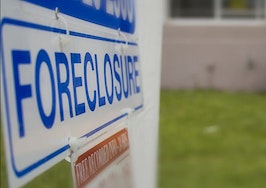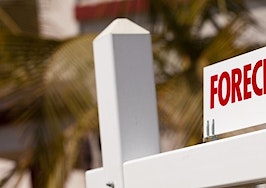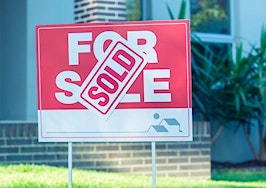- Cash buyers in some markets are paying premium prices for properties.
- This is a sign that the markets are overheated.
Forgoing a mortgage and putting all cash on a property might increase bargaining power — right?
Not necessarily, according to RealtyTrac’s Q1 2016 U.S. Cash & Institutional Investor Housing Market Report, which shows cash buyers in San Francisco, San Jose Manhattan, Los Angeles and Naples paying premiums instead of discounts.
Cash buyers are usually willing to take on properties in worse condition that might not qualify for financing, says Daren Blomquist, senior vice president at RealtyTrac. This is why they frequently sell at a lower price point per square foot.
Nationwide, all-cash buyers purchased single-family homes and condos for $91 per square foot (median) in the first quarter of this year, which is 23 percent below the median $118 for all home purchases. However, in 9 percent of home markets, the opposite is occurring.
Previously, just 5 percent of home markets had cash buyers paying premiums.
The biggest premiums were in Honolulu (6.6 percent), Seattle (5.2 percent), San Francisco (4.8 percent), Naples, Florida (3.9 percent) and San Diego (2.5 percent).

“I would say this is evidence that cash buyers are behaving a little bit irrationally in these markets and paying more than they should be,” said Blomquist.
In high-priced markets, the norm is for cash buyers to buy at a discount. The usual reason a buyer would be willing to pay with cash is because he or she can get a discounted price on properties by avoiding a mortgage.
Blomquist noted that when cash buyers are paying more than buyers using financing, that to him is a sign that the market is overpriced and overheated.
Is all-cash in a pricey market a bad idea?
While the markets with premiums for all-cash purchases tend to have higher home prices, Blomquist doesn’t believe this is an indication of unwillingness to negotiate from the seller end. Rather, this is unsound behavior on the buyer end, potentially fueled by foreign buyers looking for quick investment strategies.
“It may be because they have the means to do so, and I would suspect a lot of this is tied to foreign buyers,” he said. “They are not as concerned about price as they are as a place to park their cash, which is inflating these numbers.”
San Jose homebuyers paid a 2.2 percent premium, Los Angeles paid 2.2 premiums, Cape Coral-Fort Myers, Florida buyers paid a 1.5 percent premium and Oxnard-Thousand Oaks-Ventura, California buyers paid a .2 percent premium.
“If you have cash, you can often negotiate; it’s just that these buyers are often not taking advantage,” he said. “Just pay with cash smartly, and leverage that cash to get the best deal.”
While a competitive marketplace could still push up the ante, smart cash buyers typically move on to the next property rather than pay a premium.
In Manhattan, the cash buyer dilemma is a bit more dynamic. The greater New York metro realized a 14.2 percent discount, but Manhattan buyers still paid a 5 percent premium when paying with all-cash instead of opting for financing.
Brooklyn had a marginal 1.8 percent discount for cash buyers. In Queens, there was just a 1 percent discount. But, when you venture out to the Bronx, cash buyers got a 21 percent discount.
“In Manhattan you can almost see the ripple effect. I think it’s somewhat similar in SF but even more pronounced in NYC,” Blomquist said. “It definitely seems to be centered around Manhattan, and a little bit into Brooklyn and Queens. When you get out further, you see more traditional cash buyer discounts kick in.”
Where are cash buyers winning?
In Baltimore, cash buyers benefitted from a 58.2 percent discount. Other markets with the highest discounts — with at least 1,000 single family home and condo sales in the first quarter of 2016 — included Harrisburg, Pennsylvania (52 percent), Akron, Ohio (50.2 percent), Birmingham, Alabama (49.3 percent) and Columbia, South Carolina (48.3 percent).
In Baltimore, and other metros with a high foreclosure rate, there’s a strong correlation between cash buyers getting premium discounts and the increasing number of distressed homes.
The reasons for the cash buyer discount are two-fold, Blomquist points out. Cash buyers are appealing to sellers because they have a quick closing and a guaranteed sale as opposed to relying on a contingency of financing.
In Baltimore, cash buyers get an even bigger discount, because often they are the only ones willing and able to buy highly distressed properties. Lenders sometimes won’t even qualify properties for loans in extremely poor condition. The cash buyer faces no competition from financed buyers.
“Places like Baltimore have a double-edged advantage,” he said.
Investor purchases dropping
Institutional investor shares of sales are down to 2.6 percent from 4 percent in Q4 and 3.4 percent in Q1 2015 — quarter-over-quarter, this decline has been gradual.

Annually, the biggest decline in institutional investor home purchases was in:
- San Francisco (64 percent drop)
- Seattle (57 percent drop)
- Riverside-San Bernardino, California (57 percent drop)
- San Diego (52 percent drop)
- Los Angeles(44 percent drop)
- Detroit (41 percent drop)
- Dallas (38 percent drop)
Overall, the share of entities purchasing at least 10 homes decreasing in 78 percent of metros.
“There are a few places where institutional investors are increasing but that’s definitely an exception to the rule. The drawback to acquisitions is a national trend,” Blomquist said.
Fewer cash buyers — can traditional homebuyers keep pace?
In addition to the number of institutional investors dropping, the number of cash buyers in most markets is dropping, which is a further cause for concern, says Blomquist.
“Those cash buyers may have been propping up the market with their willingness to pay a higher price, but now they are dwindling,” he said. “These markets are going to be much more dependent on traditional buyers who probably can’t afford to pay the high prices that the cash buyers were.”
So what does that mean for the future? Well, now that irrational cash buyers pushed prices up – and likely won’t stay in the market forever – traditional homebuyers requiring lending are left to pick up the pieces, and suffer potentially inflated prices.
“It could be a bumpy transition as these markets move away from cash buyers and more toward traditional buyers,” he said.









